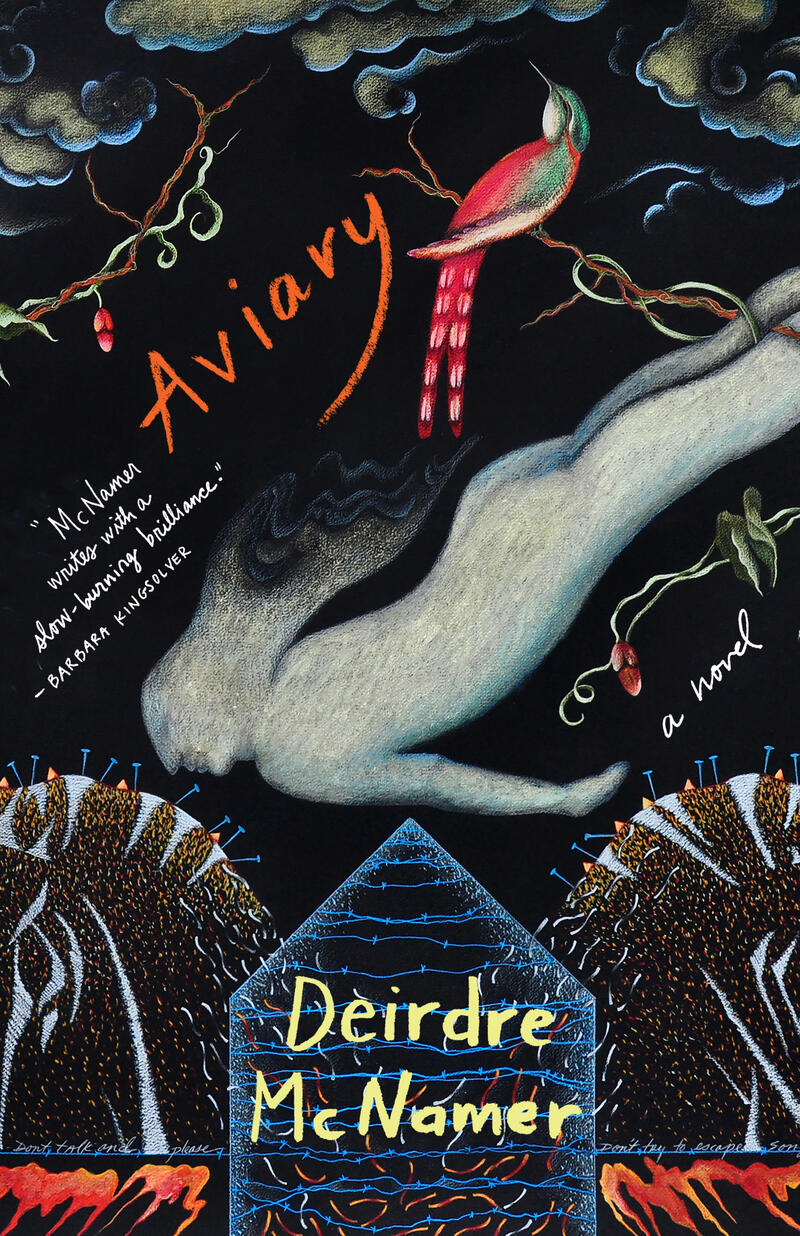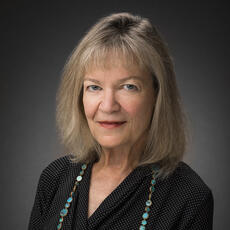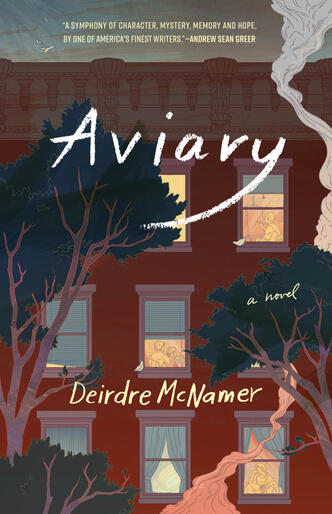Deep Cuts—Deirdre McNamer's Aviary
Hello, friends, and welcome to another edition of Deep Cuts! In this series, we dive in with some of our authors and discuss the behind-the-scenes work that goes into the composition and production of their books. This month, we’re excited to chat with Deirdre McNamer about Aviary, a brightly-plumed spin on a who-done-it due out later this year in April.
With senior residence Pheasant Run at its nexus, Aviary explores an extensive cast of overlapping lives—many of whom feel themselves forgotten. But McNamer invites us to slow down and appreciate the depth of these lives, to consider the mysteries that connect them. What we learn by residing in this world is that ending up in the margins of a story (alone in a retirement home, or separated from those we thought we’d know forever, or just at the end of a series of unfortunate circumstances) doesn’t necessarily mean an absolute end—sometimes it means a new story is about to begin.

Bailey Hutchinson: It’s such a pleasure to spend time with the many distinct characters in Aviary. How did you develop this cast? Do you have a favorite among the book’s roster?
Deirdre McNamer: One of the near-miracles of fiction writing, it seems to me, is that you can begin with characters who are a bit like those chalk marks on the floor of a crime scene—just outlines, just faceless players—and raise them to life, so to speak. And you do so by an act of sustained imagination. Who could these people be? What might their stories be? What if an individual has a secret sorrow, a secret agenda? What might be an interesting physical presence to give them? How might they make other characters feel worried, or comforted, or intrigued? How do they talk? How do they listen? What do they most want?
Sometimes, but not always, real people I have known or observed helped me create fictional characters. Mostly, though, they have been only instigations or triggers. And the character who results bears only a glancing resemblance to the real, triggering one.
My late parents, for instance, lived for a time in a residence for seniors that I visited frequently. They had neighbors there with whom I developed a passing acquaintance—nothing, really, beyond greetings in the elevator. But one or two of them prompted me to imagine, to create, new people in my mind. Maybe more important, in the case of the Aviary cast and the building that is the fulcrum of the story, they inspired me to wonder about vulnerabilities of several kinds: physical frailty, disappearing time, fears of homelessness, fears of irrelevance.
Do I have a favorite from the Aviary roster? Maybe it’s chivalrous Leo, the Italian who landed in a WWII internment camp near a small Montana city, and stayed in that city for the rest of his very long life. Why? I think it’s because he reminds me of my beloved childhood piano teacher, a very old white-haired Brit with one blue eye and one brown one, who somehow landed in rural northern Montana, and stayed there the rest of his life. See? One might have triggered the other, but, as for the substance of their lives, I’ve probably made up both.
BH: A cat “[perches] near the chimney, inky and totemic against the silvering sky.” Cassie “[imagines] herself as a tangerine-colored finch, stretching her wings to move swiftly through canopies of glittering leaves.” Aviary isn’t fantasy, but your descriptions and dialogue have a music and inventiveness to them that—to me, at least—feels downright magical. Can you tell us a bit about honing this voice?
DM: For me, nothing is served by trying to jam the sheer, always-morphing strangeness of human life into reasonable containers, whether that container is the serviceable sentence or the description that reinforces exactly what a reader would expect. I love a description, a sentence that surprises me a little; that is kinetic. I also love the sounds of words arranged in certain orders. I love pauses, silences, that say as much as the words do. So there is music-appreciation involved as well. The honing has simply involved indulging my preferences.
The magical part sometimes happens for me, too, and it’s something I didn’t anticipate, early on, because it seems so simple. Gradually, I have discovered (I think) that when I choose, for whatever reason, to bend a description, or use an unusual word, or rearrange conventional plot hierarchies (by, say, focusing intently on a character who seems peripheral to the plot), then sometimes a window opens unexpectedly and I see what the story wants to be. I get a glimpse, anyway. A window opens that wouldn’t have otherwise, had I not (rather perversely) shaken the house a little.
BH: Was there a moment when the narrative direction of the novel clicked for you, or did you always have a sense of what would happen to the residents of Pheasant Run, to their neighbors and friends?
DM: Writing any novel, in my experience, is a long exercise in not-knowing. That said, Aviary took a particularly long time to write—too long a time—because I wrote it in changing emotional states.
At first, I might have been trying to divert myself from the fact that my parents were declining and then dying, so I attempted to write a comic who-done-it with interesting dark undertones. I wanted to allow myself to laugh and, probably as well, to achieve some psychic buffering. Then, as I became more involved and concerned with the characters—and more knowledgeable about them—I began to see the possibilities of interesting relationships between and among them. And I also began to see that I didn’t have to fend off larger, more troubling mysteries.
This has happened to me in earlier novels: I planned to write something approaching a crime mystery—Who shot the protagonist’s husband in My Russian? Was the main character’s death an accident, a murder or a suicide in Red Rover?—and then I found that bigger mysteries took over and involved me more completely.
Unfortunately, mysteries having to do with the nature of memory, the process of aging, the ways in which we yearn, and undermine ourselves, and sometimes survive and even triumph over our tendencies and our conditions—those kinds of mysteries—don’t lend themselves to writerly efficiency and speed. The moment when the narrative clicks, if it ever does, can be a long time coming.
BH: What kind of research went into this book? Without giving too much away, did you have to look into the particulars of building management buyouts and insurance policies?
DM: I worked as a daily journalist for a decade before I began to write fiction, and I think it’s important to have the factual underpinnings of a fictional narrative as accurate as you can make them. So, yes, I interviewed a fire inspector who knew a lot about arsons. I read professional publications for arson investigators. My research also focused on condominium regulations and market trends; elder scams; the World War II internment camp that existed outside Missoula, Montana, where I live; big pharma and the proliferation of drugs targeted at adolescents; life insurance policy terms. And more. Also, I recently came across a computer file in which I had summarized, for my siblings, the financial status of my parents and the options for additional care for them, given a variety of scenarios. A more personal kind of information-gathering.
And then, of course, I had to visit Santa Barbara a time or two because one of my characters finds herself there for a week or two. All research should be so pleasant.
BH: Aviary feels especially prescient fresh out of 2020—a time when many are faced with eviction, homelessness, and financial instability—but its critique of a profit-obsessed society is timeless. What do you hope readers take away from this?
DM: That many old people are quiet heroes. That the profit-obsessed are quite willing to throw them, and others who are particularly vulnerable, under the bus. That we all live on the verge of stunning change, whether we know it or not. That kindness counts.

